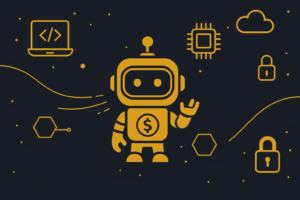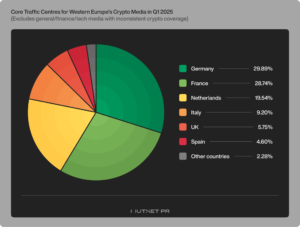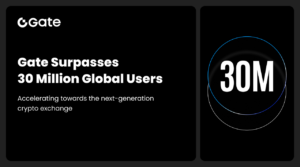Ethereum Can be Used for Cancer Research: Here’s How it Works

Cancer research is a complex and expensive process that requires extensive collaboration and data sharing among researchers. With the emergence of blockchain technology, specifically Ethereum, cancer research has the potential to become more efficient and secure. In this article, we will explore how Ethereum can be used for cancer research and its benefits.
Understanding Ethereum and Blockchain Technology
Before delving into how Ethereum can be used for researching cancer, it is important to understand the basics of blockchain technology. A blockchain is a decentralized digital ledger that records transactions or information across a network of computers. Each block in the chain contains a cryptographic hash of the previous block, timestamp, and transaction data. Once added to the chain, a block cannot be altered without invalidating subsequent blocks, ensuring the integrity of the information stored in the blockchain.
Ethereum is a blockchain-based platform that allows developers to create and deploy decentralized applications (dApps) using smart contracts. Smart contracts are self-executing contracts that automatically enforce the terms of an agreement between parties. They are coded on the Ethereum blockchain and run as programmed without intermediaries.
How Ethereum Can Be Used for Cancer Research
Cancer research involves collecting and analyzing vast amounts of data from different sources, including patient records, clinical trials, and genomic data. This data must be securely stored, shared, and analyzed to gain insights into the disease and develop effective treatments. Here’s how Ethereum can help:
- Secure Data Sharing
Ethereum can be used to create a secure and decentralized platform for sharing cancer research data among researchers, hospitals, and other stakeholders. By creating a blockchain-based system, cancer research data can be encrypted and stored on the blockchain, ensuring that only authorized parties can access the data. Smart contracts can be used to enforce data privacy and security protocols, ensuring that data is not compromised.
- Transparency and Traceability
The transparency and traceability of the Ethereum blockchain make it an ideal platform for tracking the movement of cancer research data. Researchers can use smart contracts to track the use and sharing of data, ensuring that data is only used for its intended purpose. This can help prevent the unauthorized use of data and ensure that data is being used ethically.
- Crowdfunding Cancer Research
Cancer research is costly, and funding is often a limiting factor in advancing research. Ethereum can be used to create a crowdfunding platform for cancer research, allowing individuals to contribute small amounts of cryptocurrency to support cancer research initiatives. This can help fund research that may not otherwise receive funding from traditional sources.
- Smart Contracts for Clinical Trials
Clinical trials are a critical component of cancer research, requiring significant resources and coordination. Ethereum smart contracts can be used to automate the administration of clinical trials, making them more efficient and cost-effective. Smart contracts can automatically enroll patients in trials, track patient progress, and automatically disburse payments to trial participants.
Benefits of Using Ethereum for Cancer Research
Using Ethereum for cancer research offers several benefits, including:
- Security: Using a decentralized blockchain system, cancer research data can be securely stored and shared among authorized parties, reducing the risk of data breaches and unauthorized access.
- Transparency and Traceability: The Ethereum blockchain allows for the transparent and traceable tracking of cancer research data, ensuring that data is being used ethically and for its intended purpose.
- Cost-Effective: Ethereum smart contracts can automate many administrative tasks associated with cancer research, reducing the cost and time required to conduct research.
- Crowdfunding: Ethereum can be used to create a crowdfunding platform for cancer research, allowing individuals to contribute small amounts of cryptocurrency to support research initiatives.
Challenges of Using Ethereum for Cancer Research
While Ethereum offers many benefits for cancer research, several challenges must be addressed. These include:
- Adoption: The adoption of blockchain technology, including Ethereum, in the healthcare industry is still in its early stages. There is a need for greater education and awareness about the benefits and applications of blockchain technology for cancer research.
- Interoperability: Cancer research data comes from various sources and is often stored in different formats. To use Ethereum for researching cancer, interoperability between different data sources and platforms is necessary.
- Regulation: The use of blockchain technology, including Ethereum, in healthcare, is subject to regulatory requirements. There is a need for clear guidelines and standards to ensure the safe and secure use of blockchain technology in cancer research.
- Scalability: As the amount of cancer research data grows, there may be scalability issues with the Ethereum blockchain. This can be addressed by developing new solutions, such as off-chain scaling solutions.
Conclusion
Cancer research is a complex and costly process that requires collaboration, data sharing, and secure storage. Ethereum and blockchain technology offer a promising solution to these challenges. By creating a secure and decentralized platform for sharing cancer research data, using smart contracts for clinical trials, and enabling crowdfunding for cancer research, Ethereum can make cancer research more efficient and cost-effective. However, some challenges must be addressed, including adoption, interoperability, regulation, and scalability. As blockchain technology continues to evolve, it has the potential to revolutionize the way we conduct cancer research and improve outcomes for cancer patients.

I have been in the industry for over 5 years. I know all the latest news and what is going on with different coins. I write about Bitcoin, Ethereum, Litecoin, and more.







